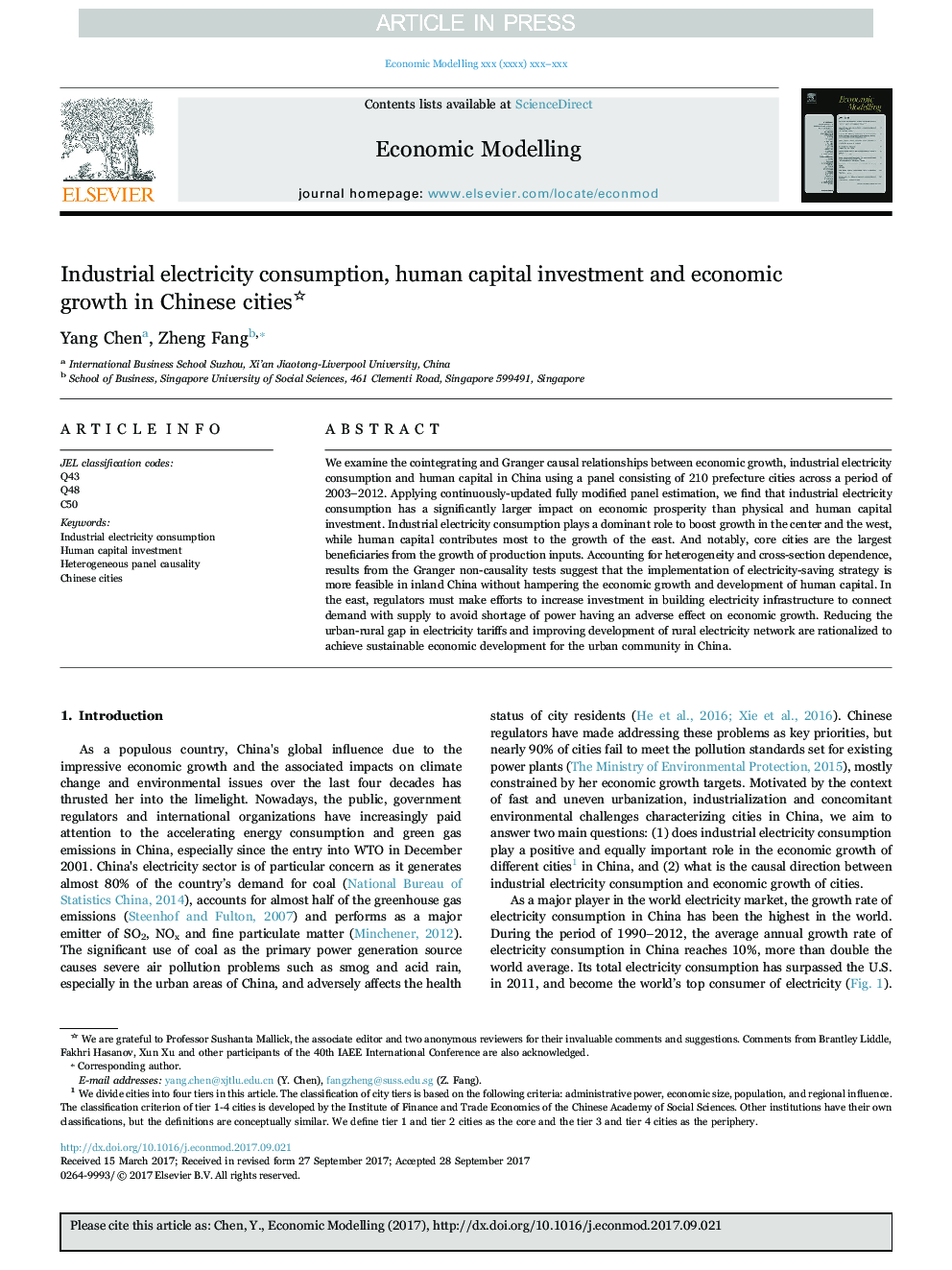| Article ID | Journal | Published Year | Pages | File Type |
|---|---|---|---|---|
| 7347477 | Economic Modelling | 2018 | 15 Pages |
Abstract
We examine the cointegrating and Granger causal relationships between economic growth, industrial electricity consumption and human capital in China using a panel consisting of 210 prefecture cities across a period of 2003-2012. Applying continuously-updated fully modified panel estimation, we find that industrial electricity consumption has a significantly larger impact on economic prosperity than physical and human capital investment. Industrial electricity consumption plays a dominant role to boost growth in the center and the west, while human capital contributes most to the growth of the east. And notably, core cities are the largest beneficiaries from the growth of production inputs. Accounting for heterogeneity and cross-section dependence, results from the Granger non-causality tests suggest that the implementation of electricity-saving strategy is more feasible in inland China without hampering the economic growth and development of human capital. In the east, regulators must make efforts to increase investment in building electricity infrastructure to connect demand with supply to avoid shortage of power having an adverse effect on economic growth. Reducing the urban-rural gap in electricity tariffs and improving development of rural electricity network are rationalized to achieve sustainable economic development for the urban community in China.
Related Topics
Social Sciences and Humanities
Economics, Econometrics and Finance
Economics and Econometrics
Authors
Yang Chen, Zheng Fang,
